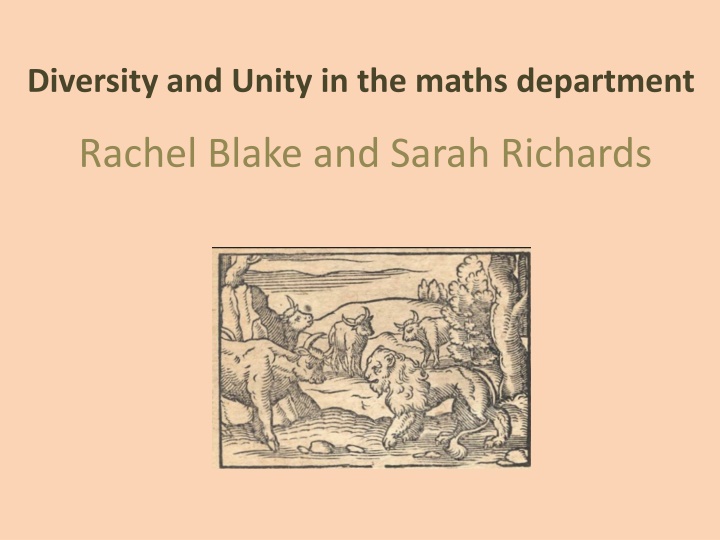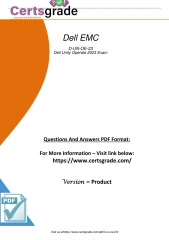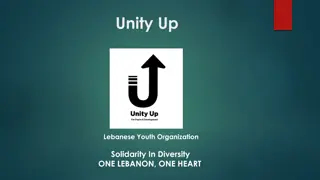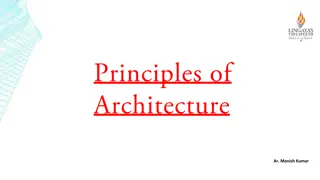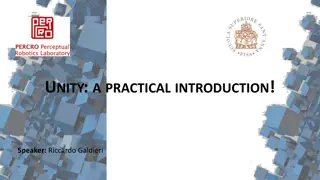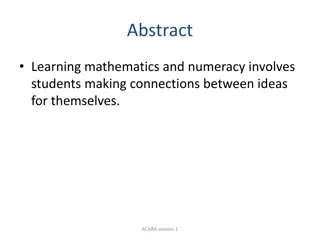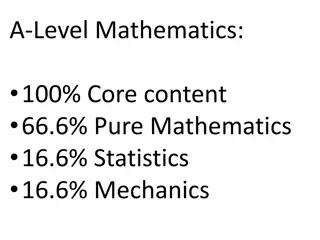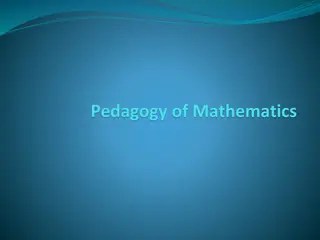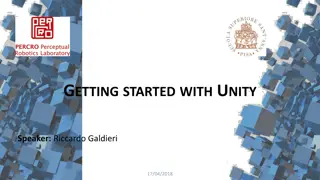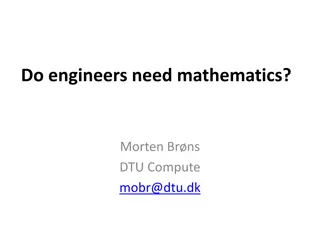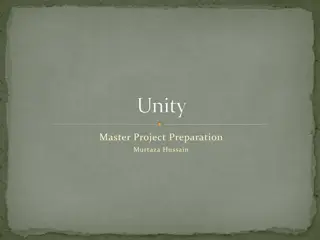Enhancing Mathematics Learning Through Unity and Support
In the mathematics department, Rachel Blake and Sarah Richards emphasize diversity, unity, and the importance of supportive learning environments. They highlight the impact of psychological factors, growth mindset, helpful beliefs, and efficient teaching methods to improve mathematical resilience and motivation. Collaborative work, scaffolding, and peer coaching play pivotal roles in fostering mastery experiences with challenging tasks, leading to increased cognitive activation and success in solving complex mathematical problems.
Uploaded on Feb 26, 2025 | 0 Views
Download Presentation

Please find below an Image/Link to download the presentation.
The content on the website is provided AS IS for your information and personal use only. It may not be sold, licensed, or shared on other websites without obtaining consent from the author.If you encounter any issues during the download, it is possible that the publisher has removed the file from their server.
You are allowed to download the files provided on this website for personal or commercial use, subject to the condition that they are used lawfully. All files are the property of their respective owners.
The content on the website is provided AS IS for your information and personal use only. It may not be sold, licensed, or shared on other websites without obtaining consent from the author.
E N D
Presentation Transcript
Diversity and Unity in the maths department Rachel Blake and Sarah Richards
What makes a difference? Support from curriculum areas all working together Someone to believe in them 15% and 50% pass it is all psychological Level 3 last chance Small group Collaborative work possible Less poor behaviour Structured resources Step by step teaching methods Rote learning of essentials Paper after Paper Identifying what you had to do to get full marks
What change to make first? Growth mind set Helpful beliefs and attitudes Growth zone model Positive norms Exploratory questions Scaffolding Being less helpful Mathematical Resilience Stuck Strategies Motivation (maths relevant) Efficient methods ALIVE Tasks Modelling problems e.g., bar model Support Low floor, high ceiling tasks Peer coaching skills
United by a common focus? Mastery experiences with challenging tasks interpretation Past experience at similar tasks Adapted by Sarah Richards 2017 http://www.sesp.northwestern.edu/masters-learning-and-organizational-change/knowledge- lens/stories/2013/the-silent-team-member-how-a-lack-of-self-efficacy-can-lead-to-self-limiting- behavior-in-the-context-of-team-decision-making.html
Mastery experiences with challenging tasks interpretation Helpful beliefs and attitudes Growth mind set Growth zone model Positive norms Exploratory questions Scaffolding Being less helpful Mathematical Resilience Stuck Strategies Motivation (maths relevant) Efficient methods ALIVE Tasks Modelling problems e.g., bar model Support Low floor, high ceiling tasks Peer coaching skills
rachel.blake@abingdon-witney.ac.uk sarah.richards@abingdon-witney.ac.uk sejrichards@gmail.com
Cognitive activation instruction 10% more likely to get easy questions correct 50% more likely to get complex questions right
http://www.oecd-ilibrary.org/education/ten-questions-for-mathematics-teachers- and-how-pisa-can-help-answer-them_9789264265387- en;jsessionid=29c40j4h8feax.x-oecd-live-03
